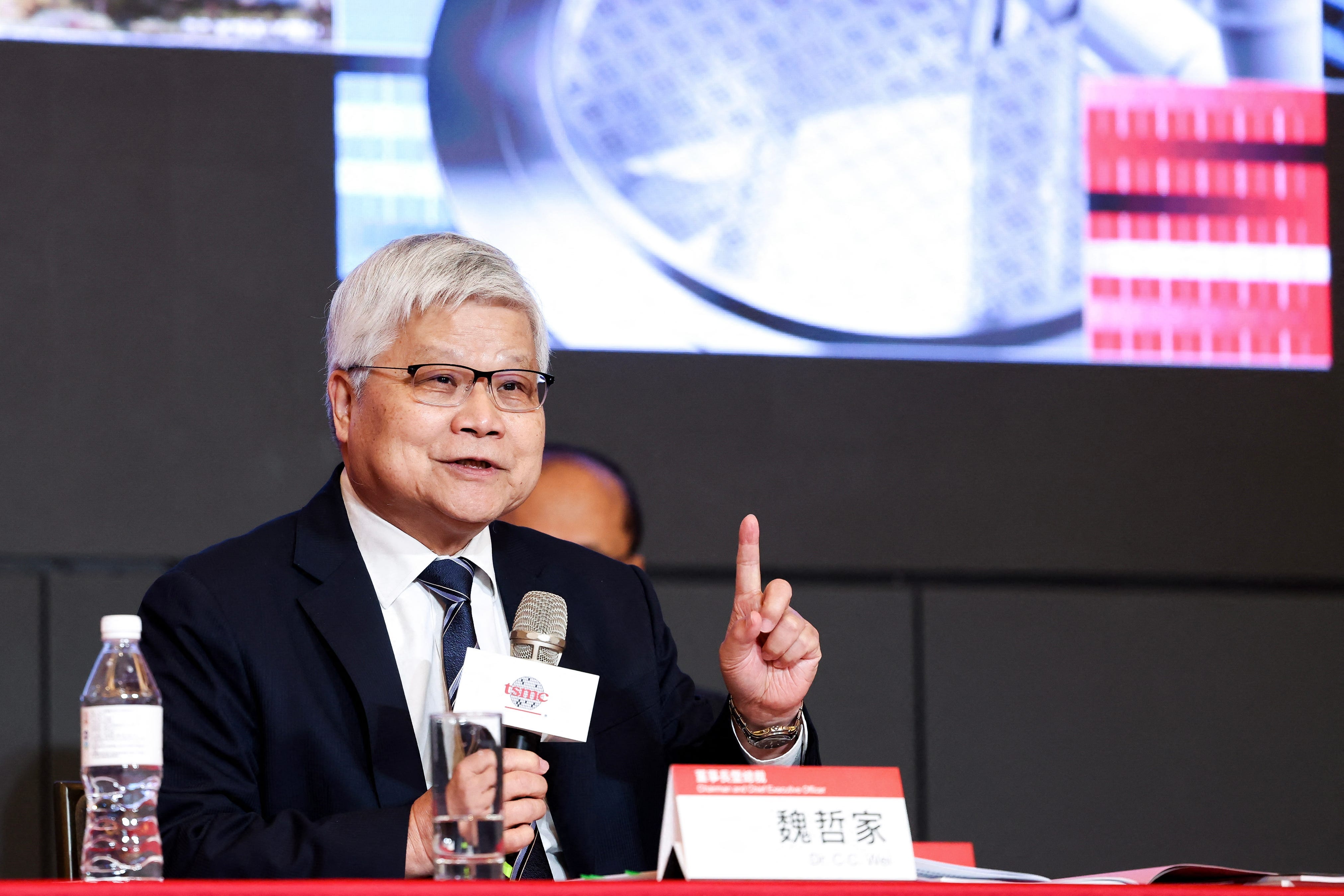
I-Hwa Cheng/AFP/Getty Images
As competition heats up in the AI chip race for graphic processing units and application-specific integrated circuits, Taiwan Semiconductor Manufacturing Company isn’t bothered.
As the world’s largest contract chipmaker, it makes them all, said CEO CC Wei.
“I look left and right, and no matter how I look at it, the orders are all from TSMC,” Wei told local media on Tuesday after a shareholder meeting in the northern Taiwanese city of Hsinchu.
Last month, TSMC reported a 42% rise in the first quarter revenue from a year ago. It was the chip giant’s fastest pace of growth since 2022.
Instead of competitors, it’s the indirect impact of President Donald Trump’s tariffs that concerns TSMC’s CEO.
“Tariffs have some impact on TSMC, but not directly. That’s because tariffs are imposed on importers, not exporters,” Wei said.
However, tariffs can lead to slightly higher inflation, which may damp end demand and impact TSMC.
“I am not afraid of anything. I am only afraid of the global economy slowing,” he said.
Even so, demand for AI chips has been robust and outpacing supply, he said. In March, TSMC announced an additional $100 billion investment in the US to boost American chipmaking.
Wei said TSMC expects the company’s revenue to grow in the mid-20% range this year, with a “record profit” even amid the tariff uncertainty and a recent sharp rise in the Taiwan dollar, which would weigh on its gross margin.
The tech sector’s demand for AI has been strong, as evidenced by Nvidia’s first-quarter earnings report last week. The tech titan’s revenue beat Wall Street’s expectations even amid US export restrictions on China’s chip sales.
Nvidia’s share price is up 5.2% so far this year after surging nearly 25% over the last month alone.
However, TSMC’s share prices have been weighed down by macroeconomic and tariff concerns. The Taiwan-listed stock is down about 8% this year. TSMC American Depositary Receipts are little changed this year.
The post Why the world’s largest contract chipmaker isn’t concerned about AI chip competition appeared first on Business Insider.




